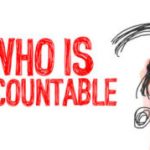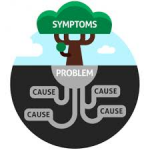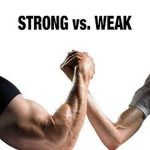

This week’s blog is a little different from my usual posts. Instead of providing answers, I’m asking questions about a topic I haven’t yet figured out (and I know I’m not the only one). My hope is to begin a dialogue, since many of my readers have lots of experience worth sharing. So, please do!
Here’s my question for business leaders: Is there really such thing as a “Return on Tweet?”
In other words, what’s the quantifiable business value of using Twitter or any other social-media channel (e.g., Facebook, LinkedIn, Google+, Pinterest, etc)?
A recent Fast Company article, The $1.3 Trillion Price Of Not Tweeting At Work, suggests that social media produces a direct ROI by providing companies with a more efficient, productive way to communicate—both internally and publically.
Wow, there must be some bad communication going on out there if improving it could save $1.3 trillion! I must admit I’m a little skeptical. And I’m not the only one.
Many experts believe it’s impossible (or at the very least, still too early) to tie ROI to social media. But does that really matter? One author in particular says it’s OK that ROI can’t be verified, because “social media is a first impression. A blind date. A first dance.”
Though only 20 of the CEOs from Fortune-500 companies have Twitter accounts, there are plenty of business experts, leaders and visionaries out there extolling its merits. Richard Branson, for example, is adamant that too few CEOs take advantage of social media. In his article, “Why aren’t more business leaders online?,” Branson writes, “Embracing social media isn’t just a bit of fun, it is a vital way to communicate, keep your ear to the ground and improve your business.”
So, to all you social-media gurus out there: What’s a business owner to do? How much time should busy executives devote to social media, and why? What’s the most productive way to spend our time online? And from which social-media activities do you yield the greatest benefit?
Really, I could use some help. Just take a look at the pitiful (in)frequency of my tweets from @BluecoreBiz and @Rtaussig. It’s not that I’m without anything to say. Maybe it’s just that I’m uncomfortable blurting out my thoughts in 140 characters or less to no one in particular.
One thing is for sure: I will have at least one tweet this week, because this blog gets automatically sent to the tweetisphere.
Please share your comments, as well as your social-media success stories. There’s a lot to learn here.





























































































11710 Plaza America Drive, Suite 2000 Reston, VA 20190
703.278.CORE (2673)
Yes, it is absolutely important to communicate with our communities where we’re building relationships, and because many of them are on social networks, there too shall we be, and without the skepticism. We don’t tweet to get something, we tweet to give something. To give our expertise, our guidance in our industry, our fellowship with like minds, our friendship with new friends we make, and to give our support when others in that social media universe reach out for help. Social Media monetizing remains an area that still has lots of research yet to be done, and I too question the data. However, the takeaway based on today’s data is that you can’t afford to not have a presence, and you can’t afford to not support others who have a presence either.
Just because it cannot be measured in the usual — and easy — way, doesn’t mean it has no value. It’s about being present, showing up, embracing the new, and helping others by sharing information. While I don’t spend a lot of time on Social Media, I have a presence. It “tears down the walls” a little, and lets people in, which is a big trend and has social value. So one doesn’t have to, and should not, share intimate information, getting a little personal is what the social in Social Media is all about.
In addition, business has a long and sorry history of de-valuing the “soft” skills, communication being one. But these essential professional skills form the basis of everything that happens after and are what lead to sales, without which, there IS no business.
First, I would say that social media is an area we all are trying to understand just how valuable or invaluable it can be. We have seen first hand how valuable it can be to promote downloading our app for a certain trade show. The immediate increase in downloads reflected the ROI and was easy to value. But many other times it is just chatter or I call it buzz. Chatter or buzz is important also – it is communication both good an bad. That is hard to quantify a specific value but it seems to me that keeping the party going is a good thing!!
So, I think no matter what you do, social media is not a single source but ANOTHER source for you to use and you combine it with everything else you do.
At the risk of sounding like a consultant, I think “it depends”. It depends upon the person and it depends upon who they are targeting. Social media fits certain personalities better than others. Personally, I find it to be mentally taxing and fragmenting. Other people are addicted to it and love it. It can give you energy or it can suck your energy. Also, are the people you are wanting to target involved in social media? I target CEOs and as the article indicates, they dont spend much time on social media. Should I be spending my time there? I dont because I “sell” an unknown, greater clarity, better focus, more alignment. It is a trust based sell and one doesnt buy from what they see in social media. That said, there is still a place for social media as a channel for developing thoughts and ideas and trying them out on a willing audience. An instant Idea focus group.
As always, I value Alison Whitmore’s opinion (above). Obviously, there is an age gap in use of social media. Younger people live it and breathe it. Older ones of us, with some ambitious exceptions, are not social media natives but can learn to use it effectively. As to ROI, I would ask, how much did you spend on your latest marketing campaign? Okay. What was the ROI? Probably, the answer is difficult to pinpoint very precisely. What did you get in terms of leads, direct sales, increased awareness in key segments, etc? How do you monetize it?
Looking at this a different way, the Nation’s Triathlon is held every September in Washington, D.C. Within six years of its founding, it was the most attended Triathlon event on the East Coast. It is certainly not the oldest. How did this happen? It is probably no coincidence that the Facebook page for the event has more people connected to it than pages for any other Triathlon in the WORLD. Michelle Harburg, then in biz school and now a BAH consultant was behind the social media campaign. People do triathlons to be in community with others. I do them as a way to stay connected to buddies. What wiser move can you make than to connect athletes to a community that extends the community experience to before and after the event itself?
There are many more examples, of course. How did Howard Dean get out of Vermont and make it so far in the presidential primaries a few years back? A name you probably have not heard is Zephyr Teachout. He would not have gotten there without her brilliance in constructing the first social media campaign of its kind for that candidate. The Obama Campaign, which excels at Social Media, stands on the shoulders of Zephyr’s work. ROI on social media? Look no further than the man who sits in the Oval Office today.
Randy, Thanks for posting. Effective leaders have vision, build team, manage process and lead people; with speed of wisdom age and diversity of workforce, Tweeting another way to connect.
There are many ways to express and articulate our unique differentiators in the market and social media offers multiple platforms for us to choose from. Having various forms and channels of communicating allows for market reach, sometimes impacting or connecting us to people beyond our imagination; often causing what I believe are “happy accidents”. We believe in what we do as businesses and we put our best efforts towards delivering services and products we feel are valuable to our clients and consumers so why not take an extra step or two to ensure that our brand and our business stretch their reach beyond your current network. It really can’t hurt; it can only benefit in my marketing opinion.
There’s so much that comes to mind, but I’ll (try to) keep my response short, Randy. I suppose many are over-thinking it. (“What would I say?” or “Don’t I have to be careful what I post?”)
I agree with Alison’s comment that it depends on the person and their target audience. I also feel it’s becoming more and more important for leaders to have a social media presence. Clients and prospects want to know that you’re a “real” person; that they can relate to you as a fellow human. Social media provides a platform unlike anything we’ve ever experienced before.
There are many approaches to sharing via social media and THAT’S the key — remember that it should be about SHARING. Share what’s interesting and important to you (whenever you feel so compelled (and instead of hoarding all of the great information that comes your way)) and you’ll not only become more “real,” you’ll act as a curator for all who choose to follow.
As with many, I have to agree with Alison – “it depends.” I also agree with Akia’s comment – it’s meant to give not to get. So if twitter is comfortable for you, by all means use it. If not, then maybe you’ll want to have someone who will be the voice of your organization, someone who is able to share and build on those relationships.